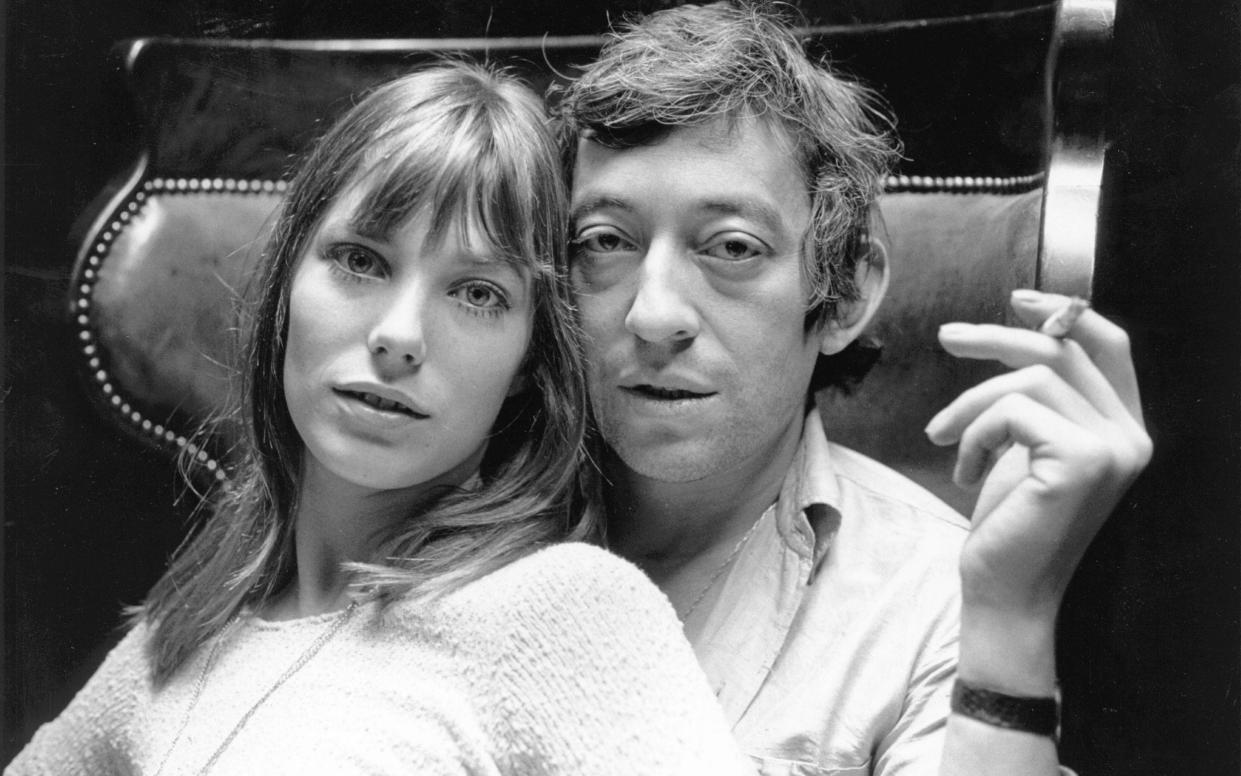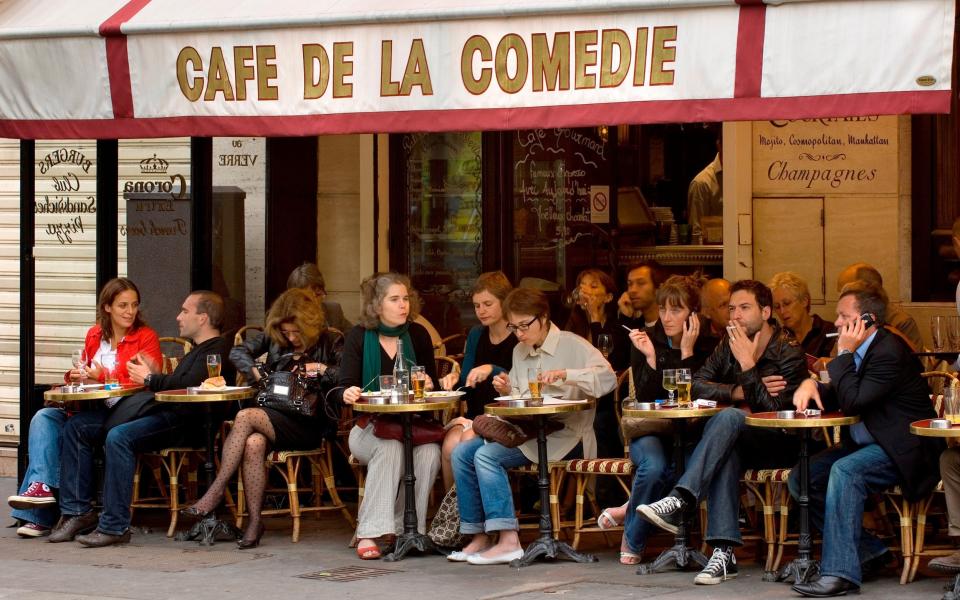Here’s something the French get right – they can’t stand woke

There is a startled pause on the other end of the line when I ask a 30-something lawyer in Paris whether he’s worried he might get sacked for sleeping with a younger colleague. “Bah, non, of course not,” he replies. “How young do you think she is?”
Later, I speak to a French PR manager who is equally dismissive. “We are all adults,” she says. “I am not going to start treating my staff like big babies. Obviously groping is bad, but if they want to take pleasure in each other, who am I to stop them? Anyway, a bit of happiness in your personal life makes you better at your job.”
Britain’s bloated HR departments might have a thing or two or say about that, and rare is the company on this side of the Channel without a policy on everything from in-office relationships to inclusive language. Around the UK, corporate executives – fearing cancellation on Twitter and hoping to appeal to younger customers – have fallen over themselves to jump on the woke bandwagon and are spending millions of pounds on diversity “tsars”, “fellows” and “officers” who survey the office floor like Nurse Ratched making sure the staff take their daily medicine.

By contrast, nobody in France seems all that bothered. My youngest brother (a long-haired vegetarian in his 20s working at a Parisian start-up) looked on in bafflement at a recent dinner when his London-based family members talked about their weekly inclusion seminars and daily newsletters promoting the importance of kindness and gender-neutral language. “None of that happens over here,” he says. “I’ve literally never heard people use the word ‘diversity’ at work.”
What they do have, however, is nearly six weeks holiday a year and restaurant vouchers from their bosses to enjoy a long lunch for free.
Remarkably impervious
France has always been remarkably impervious to global cultural shifts and has held a tight grip on its own traditions for far longer than many other western countries. “I think it’s generally about 10 years behind the English-speaking world in terms of anything politically correct,” says Paris-based British author Stephen Clarke. “Until about five years ago they were still making fun of foreign accents on television and until even more recently they thought veganism was akin to insanity. It takes them ages to catch up with these things.”
There are many reasons for this – one is the very Gallic refusal to place any new-fangled identity politics from across the Atlantic above the ineffable concept of Frenchness. Another is the deliberate colour-blindness and entrenched secularism in French law that has had far-reaching consequences in the way the country works.
But not being part of the Anglophone world also allows them to strike out on their own path. “France does follow American cultural shifts, from norms around smoking or spanking children to fads around cocktails, hip-hop and fast food,” says the Paris-based writer and lecturer Thomas Chatterton Williams. “However, I think the traditional culture is more unified and will be much more difficult to dislodge. On a linguistic level, I don’t see genderless pronouns being so suddenly and smoothly adopted, even in elite spaces.”

In general, the trans debate has been far less heated than in the UK – and when Brigitte Macron spoke out before Christmas about gender-neutral pronouns (“Our language is beautiful. And two pronouns is enough”) her comments were more widely covered in the English-speaking press than in France. Nobody appears to be asking political candidates how to define “une femme” and while the loos in restaurants remain almost universally unpleasant, they are not at the centre of a public debate.
Unconcerned
There is a similar attitude to the body positivity movement. Take one step into any French clothes shop and the tight-fitting trousers, tiny blazers and narrow skirts are proof of how Parisian designers view anyone over a size 14 – and how much smaller French people tend to be. “I don’t want to make anyone feel bad but I’m not going to pretend it’s good to be fat,” says the same PR manager. “To me, the whole body positivity movement feels quite fake and something nobody really believes in.”
On a wider level the French, as we know, don’t hold much truck with having their beliefs or desires policed. As the sociologist François Dubet wrote in Left-leaning Le Monde, “How can we think that it is up to the State to say which currents of thought are acceptable and which are not?”
They also tend to be less worried about what other people think of them. British people will often stay up-to-date with the changing currents of acceptable terminology because it can be too awkward not to.
The French are less keen to toe any politically correct line and their propensity towards searing honesty doesn’t always fit in with our new #bekind regulations (like anyone who has lived in France, I quickly learnt never to ask a local if they liked my new outfit/haircut/boyfriend without being prepared to get an answer I really didn’t want). Just look at the glorious Sylvie Grateau from Emily in Paris and her endless withering asides.

And then there is social media, which is not only less pervasive but largely less radical when it’s in French. “The saturation of social media with woke politics in the Anglo world is something that cannot be underestimated,” says Chatterton Williams. “French youth in general seem to be less oppositional to the ways of life that preceded them, too. There is not the same foundational idea of radical self-invention... they have a good and old culture, not a relatively new one, and many of them seem to know this.”
While of course there are exceptions, the result is that universities are yet to find themselves at the centre of the freedom of speech debate. There is – and I am using wide brush strokes here – also more of a harmony between the generations, with young people living with their parents for longer and often staying in similar parts of the country once they do fly the nest.
“In the UK, I find myself getting preached at by 18-year-olds all the time, but that never happens in France,” says Clarke. “Traditionally French teenagers are very teenage – they smoke and sleep with each other, but then they leave university and turn into their parents.”
And that, essentially, is the crux of the argument. For all their Left-leaning politics and fiery street protests, the French are very conservative – and their strikes are almost all about maintaining the status quo, rather than fighting to change the country or put it on a new path. Whatever you think of woke culture, it is difficult to deny that it demands a radical rethink of how we order our society – but perhaps when university is all but free, the healthcare system works, the railways run on time, energy bills are manageable and holidays are abundant, it’s difficult to care that much. Le wokisme? Le shrug.

